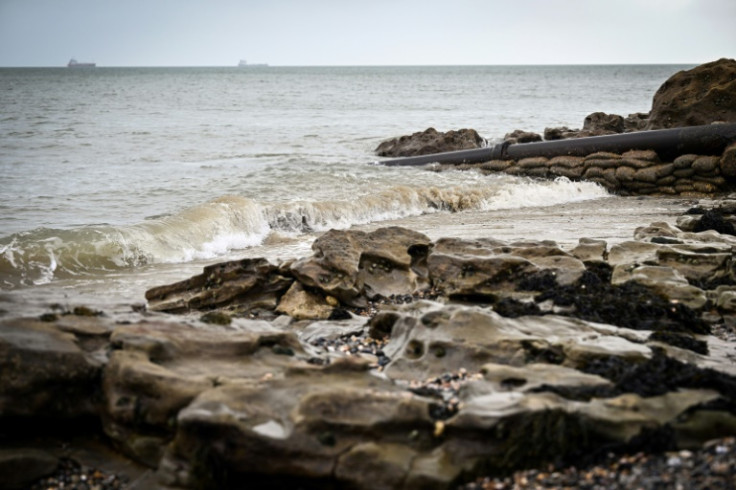Raw Sewage Blights Once-idyllic Beaches On Isle Of Wight

On the Isle of Wight, one of England's most popular seaside holiday destinations since Victorian times, a pipeline stretches out from the shore to pump raw sewage into coastal waters.
The miles of sandy beaches on the island's northeast coast, packed in summer with tourists and yachting enthusiasts, are nonetheless plagued by untreated waste water from a number of such pipes.
"We are on Ryde Beach. It's my local beach (and) absolutely gorgeous -- but there's a discharge point," local mother Chani Kind, told AFP, pointing at the submerged pipeline.
Kind, 40, who is also a spokeswoman for campaign group Surfers Against Sewage, said her son caught gastroenteritis after swimming in the sea last summer.
Retired engineer Eddie Truelove, who lives locally, said he and his wife no longer swim or walk along the beach.
"There is untreated sewage being put into the water... I am fearful of contamination," he added.
Britain's antiquated sewer system, which mostly dates from the Victorian era, is designed to release excess water into the sea during heavy rainfall in order to avoid blockages or flooding.
But privatised water companies regularly discharge waste water -- even during droughts. And they stand accused of chronic underinvestment in their networks, which have not kept up with the needs of the growing population.
"Every day that our rivers and seas are treated like open sewers is a day when water company bosses and shareholders fill their pockets with #dirtymoney. All while failing the public and the planet," Surfers Against Sewage tweeted on March 28.
The UK government on Tuesday announced its latest plan to protect England's water supplies, amid a long-running scandal over privatised water companies pumping raw sewage into rivers and onto seashores.
The proposals seek more investment from water firms, stronger regulation and potentially unlimited fines for polluters -- as well as linking their shareholder payouts to environmental performance.
A number of beaches had to be closed during last year's summer heatwave due to the high proportion of bacteria from water pollution.
Surfers Against Sewage recently published a list of 83 beaches to avoid in Britain due to the discharge of raw sewage.
The Isle of Wight, a mecca for yachtspeople off England's southern coast, has three entries.
Ryde mayor Michael Lilley says the problem is partly caused by underinvestment in water infrastructure, alongside insufficient regulation.
To make matters worse, he says, climate change has dried out the soil and made it less absorbent, which means that torrential rain gushes into the pipe network and sparks discharges.
There has been some moderate improvement, according to recent data from the Environment Agency, which is responsible for the protection and management of the environment in England and Wales.
The number of sewage discharges into rivers and coastal areas sank by almost a fifth last year to 302,000 compared to 2021, it said last week. However, this was driven by abnormally low rainfall rather than action by the industry.
Two companies -- United Utilities and Yorkshire Water -- were, between them, responsible for nearly half those pollution incidents, a total of 124,000.
Under its "Plan for Water", the government says it will seek more investment from water companies, stronger regulation and tougher fines for polluters, and bring forward infrastructure spending.
Yet campaigners and opposition politicians have condemned the announcement as little more than window dressing.
Labour leader Keir Starmer has accused Prime Minister Rishi Sunak's Conservative government of "turning Britain's waterways into an open sewer".
Back on Ryde Beach, Chani Kind still has health and safety concerns.
Her friends have also developed eye, stomach and urinary tract infections from the dirty water.
She added: "It's such a beautiful and inspiring location. But I've just got this constant background of 'Is it safe?'"
© Copyright AFP 2024. All rights reserved.





















